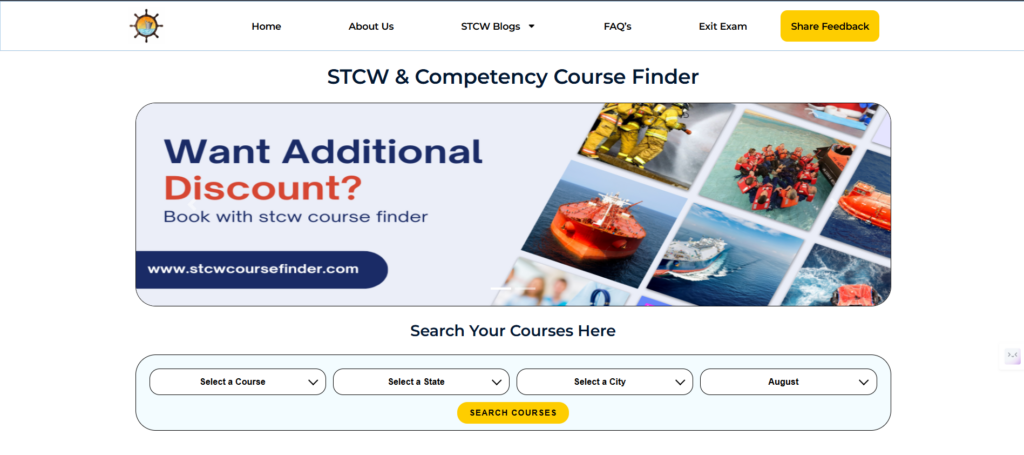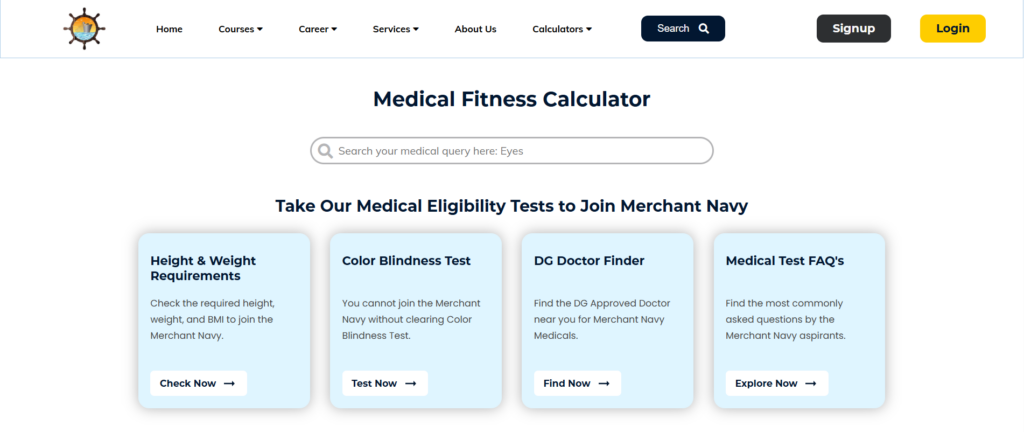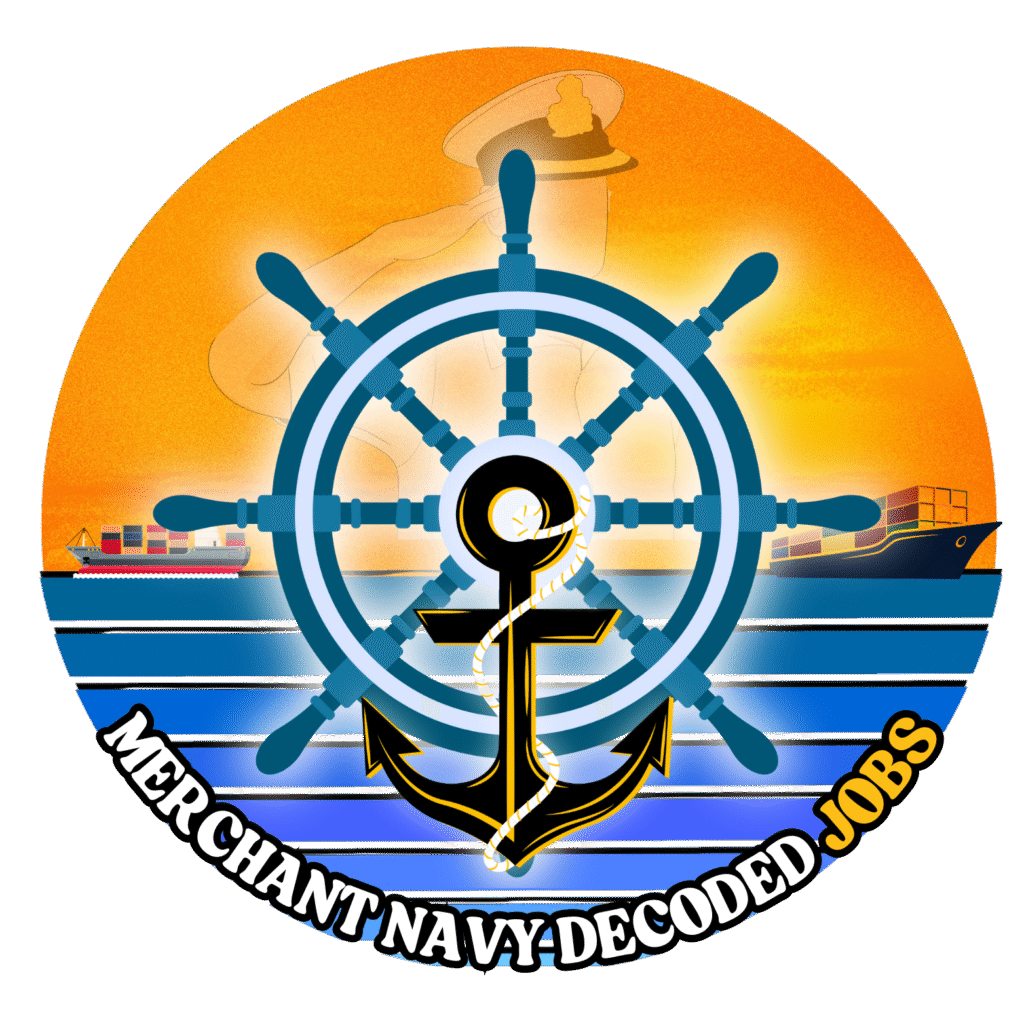How to Become an Engine Cadet in Merchant Navy? Salary, Jobs, How to Join in 2025
The Engine Cadet role in the Merchant Navy is one of the most important starting positions for anyone aiming to become a qualified marine engineer. It is the first step towards a long-term, high-paying career at sea. As an Engine Cadet, you receive hands-on training in the engine room under the guidance of senior engineers, learning how to maintain and operate the machinery that keeps the ship running.
This guide will explain how to become an Engine Cadet in 2025, what the job involves, salary expectations, career growth, and job opportunities.
What is an Engine Cadet in the Merchant Navy?

An Engine Cadet is a trainee engineer who works under the supervision of a 2nd engineer onboard a ship. Although, there is no specific responsibility on the Engine Cadet because of which he can learn the maximum from the senior engineers.
Once you clear class 4 CoC, then you will be expected to know the basic and to work on machinery you are accountable for.
How to Become an Engine Cadet in the Merchant Navy (2025)?
There are 2 main pathways to become an engine cadet in the Merchant Navy:
- Engine Cadet After Class 12th PCM.
- Engine Cadet After Mechanical Engineering.
- Engine Cadet After Diploma in Marine Engineering
Before this, you need to check whether you are eligible to join the Merchant Navy or not with our Merchant Navy Eligibility Calculator.
How to Become an Engine Cadet After Class 12th PCM?
1. Complete Class 12th (with PCM)
You must pass Class 12th with Physics, Chemistry, and Mathematics (PCM) from a recognized board. A minimum of 60% in PCM is typically required by most marine colleges and companies.
2. Apply for IMU CET Exam
You must pass Class 12th with Physics, Chemistry, and Mathematics (PCM) from a recognized board. A minimum of 60% in PCM is typically required by most marine colleges and companies.
3. Apply for IMU Counselling
Once, you get a rank in IMU CET, you can apply for the IMU CET counselling where you will get seats on the basis of your IMU CET Rank. There will be a total of 3 rounds in the counselling in which students can apply to get a college based on their rank.
Once a college is allotted to you, you can select your campus or affiliated college and proceed with the document verification. Sometimes, colleges like Tolani Maritime Institute and other colleges also conduct their own test to select the best candidate for the B.tech Marine Engineering.
4. Verify All Documents
After clearing the exam, you can proceed for the document verification and payment procedure. You can either go to the college to give your documents or directly send via post.
5. Secure Sponsorship from a Shipping Company
In the third year of marine engineering, companies visit the college for in-campus college placement where students need to apply to get the sponsorship. Most marine engineering cadets must be sponsored by a shipping company before starting sea-time. Sponsorships ensure job placement for onboard training. Companies conduct entrance exams, interviews, and medical fitness tests. Once you pass all the tests, you will get a sponsorship letter stating that you will get a job in this particular shipping company after clearing the B.Tech Marine Engineering.
6. Complete Mandatory STCW Courses
Once you complete the B.Tech Marine Engineering or in the final semester of Marine Engineering, you need to apply for these Basic STCW Courses, without which you cannot join the ship as an Engine Cadet:
- Basic Safety Training Course
- STSDSD Course
- Basic Training for Oil and Chemical Tanker Cargo Operation.
- Basic Training for Liquified Gas Tanker Cargo Operation
To book the STCW Course anywhere in India for the lowest price, you can take the help of STCW Course Finder.

How to Become an Engine Cadet After Mechanical Engineering?
Students pursuing B.Tech Marine Engineering can also become an Engine Cadet with GME or Graduate Marine Engineering.
1. Complete B.Tech Mechanical Engineering
Students with more than aggregate 50% in their B.tech Marine Engineering can apply for the 1 year Graduate Marine Engineering Course after which students can go onboard as an Engine Cadet and start their profession in the Merchant Navy.
2. Apply for Sponsorship and GME College
After passing the Mechanical engineering, you need to apply to the college and shipping company for the sponsorship which acts as proof that after passing 1 year GME, you will be given a job at a particular shipping company.
3. Attend the Written Exam and Interview
The sponsorship is given based on a written exam and interview conducted by the company. For the written exam and interview, you need to prepare for the aptitude test, english, and reasoning based questions.
For the interview, students are advised to prepare the basic questions like:
- Difference between 2 stroke and 4 stroke engine.
- Supercharging and Turbocharging
- Scavenging, knocking
- Lubrication systems
- Fatigue, failure, etc.
For the best preparation of the GME Sponsorship interview and written exam you can check out the SMVD Marine Academy where top marine engineers and chief engineers guide you for the selection in the top shipping company.
4. Medical Test
After getting the sponsorship, you need to go to the DG Approved doctor for the medical examination. Without clearing this, you won’t get a seat in any DG approved college. There you will be tested for eyesight, physical disability, colour blindness, and diseases. To check the DG Shipping doctor near you or whether you are medically eligible for merchant navy or not, check our Merchant Navy Medical Eligibility Calculator.

Duties and Responsibilities of an Engine Cadet
The main role of an engine cadet is to learn and assist. He is not accountable for any operation on the ship directly. Because of this reason, the engine cadet can learn a lot of things on his first ship.
An Engine Cadet plays a supporting role in the engine department and is expected to:
- Assist in Engine Room Watchkeeping
One of the most important duties of an Engine Cadet is to help the duty engineer during engine room watches. You will:
- Check the ship’s engines and machines
- Take readings of temperature, pressure, and fuel levels
- Report any unusual noise, smell, or problem
- Take Regular Engine Room Rounds
Cadets walk through the engine room several times a day. You will inspect machinery, look for leaks, check oil levels, and make sure everything is working properly.
- Basic Cleaning and Maintenance Work
As a trainee, you will do basic engine room maintenance. This includes:
- Cleaning filters and strainers
- Changing small parts like gaskets and filters
- Assisting senior engineers during big repairs
- Manage Fuel and Oil Systems
Engine Cadets must regularly check the levels of fuel oil, lubricating oil, and cooling water in tanks and machinery.
- Help With Purifiers and Auxiliary Machines
You will learn to operate and clean purifiers, air compressors, sewage treatment plants, and other small machines under supervision.
- Record Keeping and Logbooks
A big part of your job will be filling in logbooks and keeping records of all engine room activities. This helps senior engineers track the performance of the ship’s machinery.
- Participate in Safety Drills
Engine Cadets must attend all safety drills on board, like fire drills, abandon ship drills, and oil spill drills. You will also learn how to use life jackets, fire extinguishers, and breathing equipment.
- Complete the Training Record Book (TRB)
Every Engine Cadet must complete a Training Record Book while on board. This book lists all the tasks you must learn and get signed by your seniors. It is required for your Certificate of Competency (CoC) exams later.
Engine Cadet Salary in Merchant Navy (2025)
The salary in merchant navy depends on the factors mentioned below:
1. Rank
The higher your rank, the higher your salary. Officers and senior crew members earn more than junior crew.
2. Experience
The more experience you have, the better your salary. Experienced seafarers usually get higher pay than those who are new to the job.
3. Type of Ship and Company
Your salary also depends on the type of ship you work on. Some ships are harder to work on or need special skills, so they pay more.
- Bulk carriers: The salary is comparatively less than container and tanker ship due to less involvement of dangerous cargo and less hectic work.
- Tankers (oil, chemical, gas ships): These types of ships offer the maximum salary, as they carry dangerous cargo that requires special training, certificates and precautions to safely transfer the cargo from one place to another.
- Container ships: The salary is comparatively less than a tanker but on the higher end than in bulk carriers.
| Type of Ship | Monthly Salary (Approximate) |
| Bulk Carrier | ₹40,000 – ₹70,000 |
| Oil/Chemical Tanker | ₹50,000 – ₹80,000 |
| Container Ship | ₹45,000 – ₹75,000 |
Tax Benefit: If you stay outside India for more than 182 days in a financial year, your salary is tax-free under Indian income tax rules, provided you maintain Non-Resident Indian (NRI) status.
How to Apply for an Engine Cadet in the Merchant Navy?
There is consistent demand for Engine Cadets as the global shipping industry continues to grow. Thousands of ships across the world require new trainees every year. You can find vacancies through websites, and maritime job portals like merchantnavydecodedjobs.com, and authorized manning agents. Keep documents like your resume, 12th mark sheet, STCW certificate, and medical fitness certificate ready when applying.
Ranks in Engine Department of Merchant Navy
After completing your cadetship and obtaining the ERW certificate, your career growth typically follows this path:
- Engine Cadet
- Fourth Engineer
- Third Engineer
- Second Engineer
- Chief Engineer
Each rank comes with higher responsibilities, international exposure, and a significant salary increase.
Frequently Asked Questions (FAQs)
What is the salary of an Engine Cadet?
The monthly salary ranges from ₹40,000 to ₹80,000, depending on the vessel type and company.
What are the duties of an Engine Cadet?
Duties include machinery maintenance, monitoring engine performance, assisting in watchkeeping, managing oil and fuel systems, and supporting senior engineers.
How do I become an Engine Cadet after 12th?
Pass 12th with Physics, Chemistry, and Mathematics, then join a DG Shipping-approved Marine Engineering course, get sponsorship, complete STCW training, and do onboard sea-time.
What is the required sea-time for Engine Cadets?
Engine Cadets must complete 12 to 18 months of sea-time before becoming eligible for promotion to Fourth Engineer.
Are Engine Cadet jobs permanent?
No, Engine Cadet is a training position. After completing sea-time and getting certified, you can work as a full-time Fourth Engineer.

